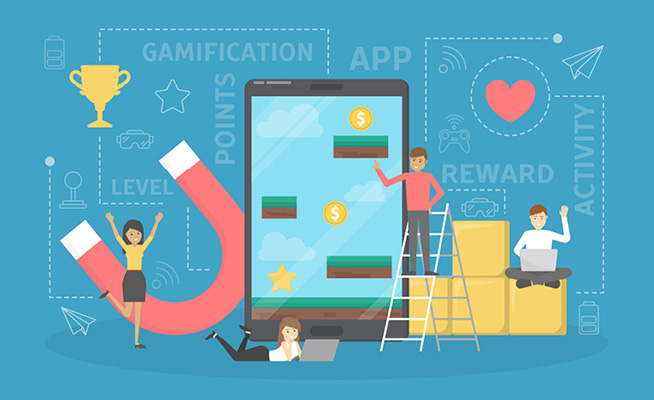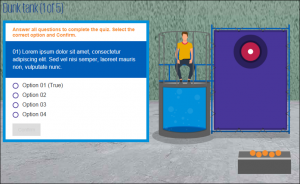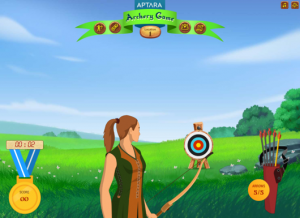
How Gamification is Used for Optimum Learner Experience
Learning is the process of expanding one’s knowledge on a given subject or subjects for better understanding and application. The learning process (while interesting for some, no matter what the subject) could be associated with monotony, boredom, forced interactions, lack of motivation, and the sheer absence of fun for many.
Here is where Gamification comes into play. Let’s look at how this concept came to be used in the field of learning and how it has evolved over the years into an exceptionally brilliant tool in the eLearning field.
What is Gamification?
Gamification is the application of game mechanics or elements of interactive game design in a non-game context to promote desired behavior and drive learning outcomes. It has become popular in the field of learning and education for obvious reasons. Gamification applies game principles like fun, play, transparency, design, and challenges in real-world objectives rather than for pure entertainment. It promotes perseverance, motivates learners, enables them to focus, and builds a sense of competition among co-learners in an attempt to ‘win’ i.e. prove to be the best learner.
Gamification utilizes concepts, such as leaderboards, badges, missions, levels, etc. to facilitate interactions and engage users. In many cases, Gamification can be integrated seamlessly in an environment and increase engagement to a level where users may not even realize they are being ‘gamified’!
Click here to see Aptara’s expertise in Gamification and how your learners/business can benefit from it.
How is it different from Game-based Learning?
Game-based learning is training that uses game elements to teach a specific skill or achieve a specific learning outcome. It takes your core content and objectives and makes it fun. Whereas Gamification is the application of those elements in a non-game context that promotes desired behavior and drives learning outcomes.
The main difference between the two learning concepts is the integration of game mechanics with learning matter. The former fully integrates the two, so the game is the training. On the other hand, the latter uses game elements as a reward for completing existing training modules. According to research by MarketsandMarkets, the global Gamification market is projected to grow from $9.1 billion in 2020 to $30.7 billion by 2025, at a compound annual growth rate (CAGR) of 27.4%.
Instructional Design for Gamification
The main areas of focus for an Instructional Designer while integrating Gamification in learning content are the following:
Engaging learners – Striking a balance between learning and play to ensure a cohesive learning environment
Opportunities to practice – Creating courses with differential problems and scenarios to derive variable learning outcomes
Assessing progress – Embedding continuous and measurable assessment within the learning course using the learners cause-and-effect variables
Feedback – The game needs to ‘tell’ the learner how well they’ve performed
Gamification Elements
This next section sheds light on some of the commonly used Gamification elements in learning content.

Badges: A sense of achievement in receiving a badge helps learners learn and have fun at the same time. Badges used wisely and in a meaningful way help learners feel appreciated.
Leaderboards: Leaderboards provide a social status element and help learners track their progress. It drives healthy competition and helps them to focus better not only on winning but actually learning through the entire duration of the course material.
Power-ups / Bonuses: These elements when scheduled into the learning content provide motivation and recognition for time, effort, and skills attained.
Avatars: HTML5 and dynamic CSS make the personalization of learning content simple and attractive. Avatars not only enhance the look and feel of the course but also accommodate individual learner preferences.
Missions: Often made up from a series of linked challenges, missions give users a fixed goal to achieve, multiplying the feeling of achievement.
Levels: Levels and goals help gauge a learner’s progress through a system. It can be as important to see where you can go next as it is to see where you have been.
Story / Theme: A story or theme puts the learner into a captivating narrative setting where learner choices are embedded into the storyline. This allows the learner to focus as much as motivates him to conclude the story i.e. complete the course.
Time-bound interactivity: Reducing the time duration allotted to learners to complete tasks creates a sense of urgency and can help them focus on the problem. It can also lead to different decisions.
Minification
As a branch of Gamification, the concept of Minification uses small games or Mini-Games to assess the quantum of knowledge the learner has gained from the learning course(s).
These are usually assessment or evaluation modules used as a reward-based system for completing existing training modules.
Some fun Mini-Games are:
- Number Search
- Ski Slalom
- The Archery Game
- Dunk Tank


Gamification – A Learning Strategy
From the late 20th century to modern-day Gamification simulations with AR and VR, gamification has proved to be an effective learning technique across various fields and industries. What happens when this learning ‘technique’ can be adopted by organizations as a learning ‘strategy’? Click here to view the recording of our webinar on Gamification Strategies to Upskill & Reskill your Hybrid Workforce to know more.
What are your views on Gamification? Tell us in the comments section below or write to us at moreinfo@aptaracorp.com.






No Comments